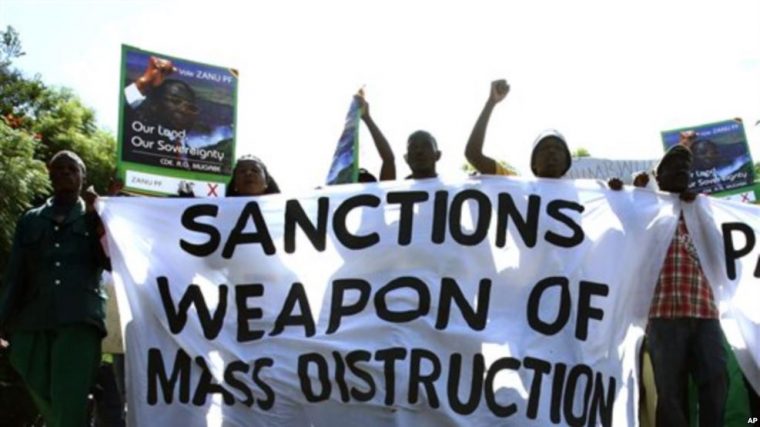President Emmerson Mnangagwa vowed to break with his dictatorial predecessor and allow democracy to flourish. The UK and others signalled their willingness to improve relations.
Yet ZIDERA remained in place. Not only that. This July, US Congress introduced an amended version of it. Passed just days before Zimbabwe’s first ever elections without Mugabe, this renewed act included the extra demand that the vote be free and fair.
It is debatable whether Zimbabwe’s 30 July elections passed that test. On the one hand, the defeated opposition alleged widespread fraud and irregularities.
The army killed six people who were protesting the electoral commission’s delays in announcing the results.
On the other hand, the polls were probably the most inclusive, free and fair elections ever held in Zimbabwe.
Either way, President Trump signed the amended ZIDERA into law shortly after. In theory, it is possible that the US’ continued punishment of Zimbabwe is about rule of law. But this seems unlikely. Instead, it is more likely that the real reasons lie elsewhere.
When ZIDERA was recently amended, it also added another important requirement. It stated: “Zimbabwe and the Southern African Development Community (SADC) should enforce the SADC tribunal rulings from 2007 to 2010 including 18 disputes involving employment, commercial, and human rights cases surrounding dispossessed Zimbabwean commercial farmers and agricultural companies.”
These rulings claimed that Zimbabwe’s land reform was illegal. The tribunal demanded the government pay compensation to dispossessed white farmers. The sum for what these claims would cost has been estimated at $30 billion.
18 years since the land seizures, the landscape in Zimbabwe has dramatically changed. Instead of 6 000 commercial farmers controlling 70% of valuable farm land, there are an estimated 200 000 new small-scale farmers.
In 2018, the country experienced its largest tobacco harvest ever. This new reality on the ground is accepted by most Zimbabweans, both white and black. So rather than being a realistic demand, the inclusion of this steep demand in the amended ZIDERA has been interpreted by many in southern Africa as a warning.
As South Africa and Namibia currently debate how to address historical injustices around land, Zimbabwe’s harsh treatment could be seen as a threat for what not to do.
Adding weight to these suspicions, President Trump tweeted his concerns about South Africa’s land reform process shortly after signing ZIDERA into law. He is reported to have been informed by fringe white farmer lobbies in South Africa who have growing alliances with white supremacist groups in the US.
How much longer can Zimbabwe’s economic punishment be justified?
Continued next page
(743 VIEWS)


